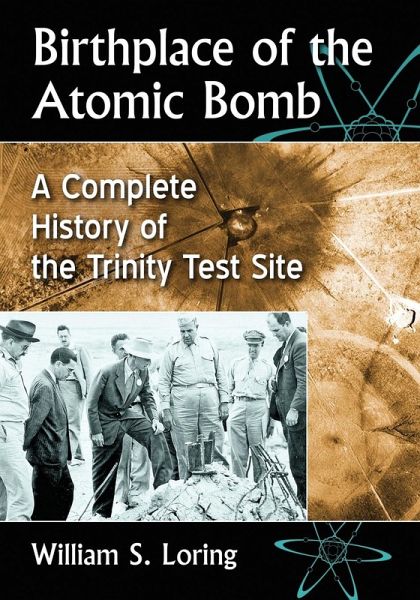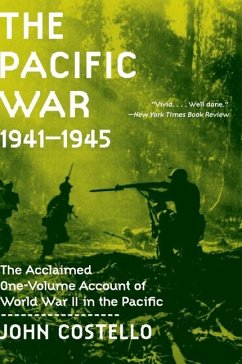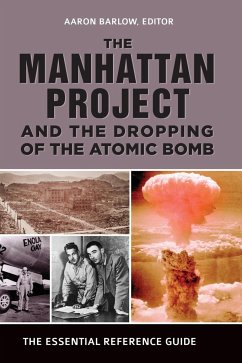
Birthplace of the Atomic Bomb
A Complete History of the Trinity Test Site
Versandkostenfrei!
Versandfertig in 1-2 Wochen
52,99 €
inkl. MwSt.

PAYBACK Punkte
26 °P sammeln!
It was not Robert Oppenheimer who built the bomb--it was engineers, chemists and young physicists in their twenties, many not yet having earned a degree. The first atomic bomb was originally conceived as a backup device, a weapon not then currently achievable. The remote Trinity Site--the birthplace of the bomb--was used as a test range for U.S. bombers before the first nuclear device was secretly detonated. After the blast, locals speculated that the flash and rumble were caused by colliding B-29s, while Manhattan Project officials nervously measured high levels of offsite radiation. Drawing ...
It was not Robert Oppenheimer who built the bomb--it was engineers, chemists and young physicists in their twenties, many not yet having earned a degree. The first atomic bomb was originally conceived as a backup device, a weapon not then currently achievable. The remote Trinity Site--the birthplace of the bomb--was used as a test range for U.S. bombers before the first nuclear device was secretly detonated. After the blast, locals speculated that the flash and rumble were caused by colliding B-29s, while Manhattan Project officials nervously measured high levels of offsite radiation. Drawing on original documents, many recently declassified, the author sheds new light on a pivotal moment in history--now approaching its 75th anniversary--told from the point of view of the men who inaugurated the Atomic Age in the New Mexico desert.














